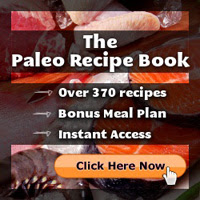The Best Foods For Stronger Bones
by Joe Martino
Strong bones are important, especially as we get into old age and want to avoid breaking bones as they can be very tough to heal in the later stages of life. Not to mention having strong bones will increase overall quality of like by increasing strength and reducing the risk of osteoporosis.
There are a number of foods that can be consumed to help keep bones healthy and strong, but before we get to that let’s quickly address one food myth.
[do_widget id=text-16]
Busting The Milk Myth
It’s commonplace to hear that drinking milk will result in strong, healthy bones. As children we are often given a lot of milk as parents have been instructed to do so due to the apparent health benefits. But is milk actually making bones stronger? Many studies say no, including a brand new study from researchers at the Uppsala University in Sweden.
The study was published in the British Medical Journal and concluded that, especially for women, drinking milk increases mortality risk and makes bones weaker. This is one of many studies that illustrate the link between milk consumption and weaker bones.
What’s interesting is that the National Osteoporosis Foundation actually states having milk daily will help with strong bones.[2] This regardless of the fact that milk has been shown to weaken bones and that people who drink milk regularly increase their risk of osteoporosis. This is why I often tell others to think twice about what they read anywhere, even when it comes to major foundations and websites who are apparently experts in their field.
The Best Foods To Eat
It is said that we need about 1000mg of calcium daily if we are under 50 years of age and about 1200mg daily if we are 50+.[4]
 Vegetables & Leafy Greens – They contain a lot of calcium, iron vitamin K and C. These are all linked to strong bones.
Vegetables & Leafy Greens – They contain a lot of calcium, iron vitamin K and C. These are all linked to strong bones.
Some of the best options are Kale, broccoli, cabbage, carrots, zucchini, and acorn or butternut squash.
One thing to note with spinach and collard greens is that they contain calcium but also oxalates which can inhibit calcium absorption. This doesn’t mean don’t eat them, just don’t rely on them as your main source of calcium since some of the calcium will not be absorbed.
Stock – Adding stocks to your meals are a traditional way of getting more vitamins in minerals into a diet in a way that. Since stocks are often made from vegetables or animal bones, vitamins and minerals are pulled out and into the water used to cook it creating a broth. You can drink broth straight or make things like soup, stew etc. with it.
Whole grains – They contain a good amount of minerals and will help cut down on other sources of protein that could draw minerals from the bones due to their acidity. (Meat & Dairy) Some great options are brown rice, whole wheat, barley, oats, rye, millet, cornmeal, amaranth, quinoa, teff, and buckwheat.
Seaweed, Nuts, & Seeds – These are all rich in trace minerals such as iron, boron, selenium, phosphorus, calcium and magnesium. They are also a good source of fatty acids which have been shown to increase peak bone health.
How To Make It Practical
Keep it simple is often one of the best ways to do things. Bring a snack or carrots, broccoli or nuts and seeds to work with you Every day. Make sure you make one of your side dishes with dinner every night contain a good amount of leafy greens. Have soup as a side at lunch or dinner. In the morning have a green smoothie with kale in it. Substitute your white rice dishes with brown rice or other whole grains. You can also eat oats in the morning or find whole grain combinations that are suitable for breakfast.
Other ways to increase bone strength is to exercise, cut down on alcohol, quit smoking and cut down on caffeine.
Sources
- http://www.bmj.com/content/349/bmj.g6015
- http://nof.org/foods
- http://www.health-alternatives.com/vegetables-nutrition-chart.html
- http://www.osteoporosis.ca/osteoporosis-and-you/nutrition/calcium-requirements/




